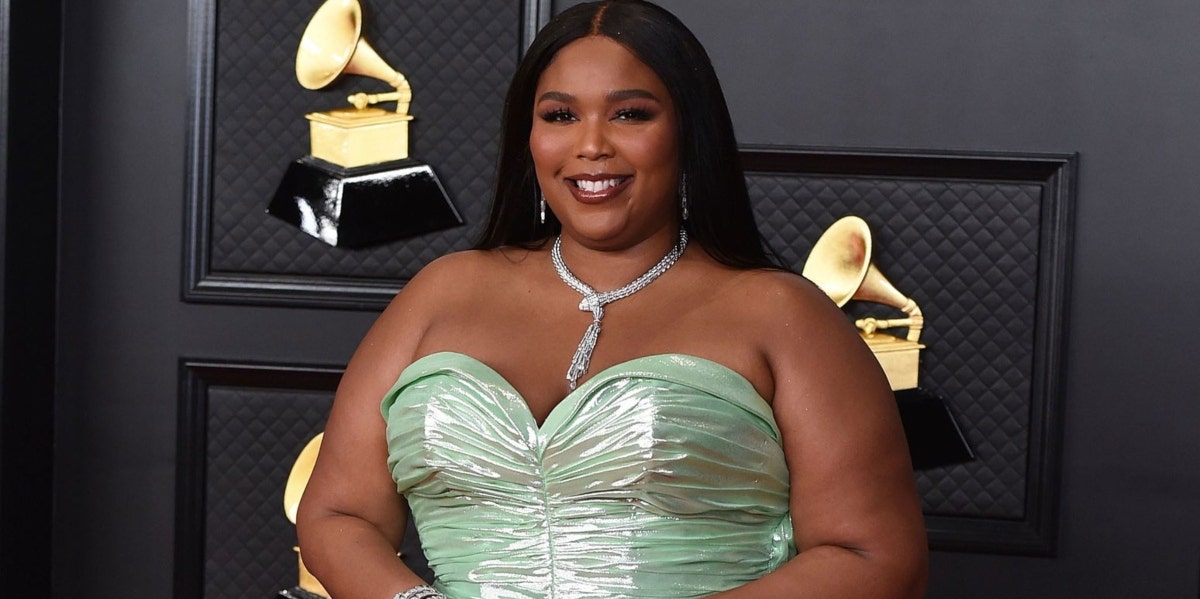Lizzo Says Body Positivity Has Been Co-Opted By 'All Bodies' — Is The Movement Leaving Fat People Behind?
Lizzo is calling out the body positivity movement.
 Jordan Strauss/AP/Shutterstock
Jordan Strauss/AP/Shutterstock Lizzo is calling out the body positivity movement, saying it has been taken away from those who need it most.
The three-time Grammy Award winner is known for preaching about body positivity, self-love, and self-acceptance on social media and in her music, but she is challenging whether such messages are getting to the right people.
Lizzo responded to an emotional video made by a user named Marissa Matthews on TikTok who was replying to a comment telling her "everyone has time to lose weight."
Matthews asked her followers why she "can’t just exist in [her] body."
Lizzo's answer to that painful question is that is that the body positivity movement has become less about the people who created it and more about people who weren’t struggling to find representation in media in the first place.
"Now that body positivity has been co-opted by all bodies, and people are finally celebrating medium and small girls and people who occasionally get rolls, fat people are still getting the short end of this movement," she said.
Lizzo says those who created the body positivity movement are now excluded from it.
The singer pointed out that fat people are still getting shamed and bullied while more and more people join a movement designed to stop this.
The body positivity movement, first known as the Fat Rights Movement, was historically intended to address "the unfair ways fat people were treated."
It has been particularly important for women of color who are doubly marginalized because of their race and body types.
However, Lizzo believes these women are being pushed out of the movement they struggled to help grow as other bodies have sought to redefine what body positivity looks like.
“The people who created this movement — big women, big brown and Black women, queer women — are not benefiting from the mainstream success of it," Lizzo pointed out.
The body positivity movement is no longer focused on equality for fat people.
We often see thin or medium-sized women in media preaching body positivity, inadvertently drowning out the voices of those who are still underrepresented.
Lizzo was quick to celebrate the fact that many women have been empowered by the movement.
“Yes, please be positive about your body," she said. "Please use our movement to empower yourselves.”
One of the main purposes of the body positivity movement was to level the playing field and celebrate all bodies equally. However, since fat bodies, Black bodies, queer bodies, and other marginalized bodies are still not being celebrated enough, it may be too soon for others to take ownership of the body positivity movement.
Yes, it is true that any and all body types can be shamed and mocked. Everyone can feel unconfident and unempowered in their body.
But due to the history of fat-shaming and marginalization directed at larger bodies, these people perhaps need body positivity more than others.
Lizzo asked that we “keep the same energy” when praising all bodies and stop elevating thin or medium-sized women above larger women.
When we elevate marginalized body types it benefits us all.
Instead of pitting people with different body types against each other or drowning out the experiences of different bodies, we need more unity in our efforts to make sure the body positivity movement represents those who created it.
When we celebrate the body types that have been the most underrepresented and most underappreciated, we make a more inclusive space for all other bodies.
In a separate TikTok, Lizzo also said that until we dismantle beauty standards that oppress fat people, we cannot equally celebrate all bodies.
Responding to a user who asked if those who feel they are “skinny-shamed” would trade places with a larger woman, Lizzo replied, "You would not because you know that there's a whole system that oppresses fat people that you do not experience and that you will never experience."
"So let's remember body positivity," she continued. "Yes, we want to end harassment and shame but we also are working to dismantle a system that oppresses fat people."
Alice Kelly is a writer living in Brooklyn, New York. Catch her covering all things social justice, news, and entertainment. Keep up with her on Twitter for more.

